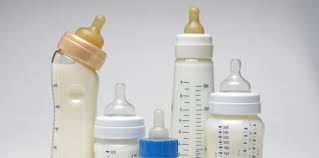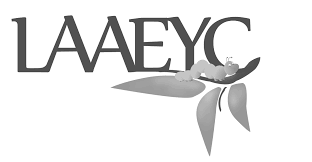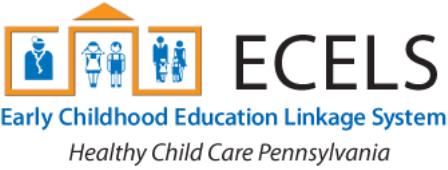 |
February Message from OCDEL Deputy Secretary, Michelle Figlar
This month I had the opportunity to be a guest on the Ask the Expert series on Connect FM 96.7 and 107.9. You can listen to  the podcast by clicking here. We talked about the Governor's and OCDEL's priorities and our initiatives moving into 2016.
As we move into 2016, we are ramping up several initiatives that will help increase access to high quality early learning services for our at-risk families, serve more families in the community and make government work better for our children, families, and providers that serve them.
Thank you for the more than 650 comments we received on the draft state plan for implementing the Child Care Development Block Grant. We are reviewing those comments now and updating our plan before it is submitted to the federal government in March. We will make a summary of those comments public as well. Thank you to the more than 100 attendees of the webinar reviewing comments on our draft announcement to reduce expulsions and suspensions in early learning programs. Thank you to everyone who has also volunteered to help with the first stages of the Keystone STARS Re-visioning. Don't worry, there will be many more opportunities to participate! If you haven't already completed our survey on how we can integrate OCDEL services, please do so.
2015-16 OCDEL budget allocations
On December 29, Governor Wolf signed a partial budget for the 2015-16 fiscal year, including OCDEL-funded programs.
The partial budget that Governor Wolf signed provides services for:
- More than 1,400 additional children in Keystone STARS (170,500 children total) to be served by an estimated 4,100 programs;
- More than 3,400 children which will be removed from the Child Care Works waiting list, to serve a total of 208,750 children;
- More than 1,500 additional children in Early Intervention, birth - five (89,515 children total); -200 children in the Parent Child Home Program;
- More than 5,300 additional children in Pennsylvania Pre-K Counts (18,800 children total);
- More than 1,000 additional children in Head Start Supplemental (5,800 children total);
- More than 30 additional children in evidence-based home visiting programs administered by OCDEL (Nurse-Family Partnership, Maternal, Infant and Early Childhood Home Visiting) (5,345 children total).
The budget includes making the use of direct Child Care Works subsidy contracts possible to Pre-K Count, and the Head Start Supplemental Assistance Program providers to meet the full-day, full-year care and education needs of their families and to additional groups. These include children from families experiencing homelessness, children of teen parents, and children in foster placement to meet their unique child care needs. OCDEL is surveying Pre-K Counts and Head Start Supplemental Assistance Program grantees to determine their needs for wrap-around and full-year care, and exploring options with Keystone STAR 3 and 4 providers that can help meet those needs as well as the needs of other prioritized groups.
The budget also increases subsidy add-on rates for STAR 3 and 4 programs (STAR 2, 3, and 4 programs serving infants and toddlers) enrolling children receiving Child Care Works subsidy to increase access to high quality early learning services. For 2015-16, STARS add-on subsidy rates have been delineated by age group (infant, young/older toddler, preschooler) to better reflect the cost of care for each age group. For example, the daily rate increased on average $2.45 per day for the STAR 3 full time rate and $3.05 per day for the STAR 4 full time rate. Programs will receive the increases retroactive to August 1, 2015, with payments disbursed in March. For more details, visit the PA Keys website.
OCDEL has also made progress on several of the Governor's initiatives for 2015-16:
- Removed approximately 2,000 children from the Child Care Works waiting list.
- Established an Integrated Services steering committee and is collecting feedback from leaders, providers and other stakeholders on recommendations to integrate compliance and monitoring and other activities across OCDEL programs to make it easier for providers to participate in OCDEL programs and for families to access those programs.
- Clarified as part of the 2015-16 application process and bidders conference that PA Pre-K Counts and Head Start Supplemental Assistance Program grantees may use a portion of their funds for transportation, eliminating a major barrier for many families.
- Allowed Head Start Supplemental Assistance programs as part of the 2015-16 application process to use funds for home-based preschool, helping to ensure that rural families have access to high quality pre-kindergarten.
- Identified special populations such as families experiencing homelessness, teen parents, siblings of children in care, wraparound child care for children in Pre-K Counts and the Head Start Supplemental Assistance Program, and children in foster care, to prioritize for Child Care Works subsidy to the extent funds are available by December 2016.
- Working with the Department of Labor and Industry to conduct an early learning workforce analysis to identify and address gaps in preparing, recruiting and retaining early childhood educators and examining the impact of the current early childhood certificate as qualification for teachers in PA Pre-K Counts.
The partial budget includes only a quarter of the funding increases the Governor requested for Pennsylvania Pre-K Counts and Head Start Supplemental in his proposed budget. With more than two-thirds of eligible preschoolers in Pennsylvania not having access to publicly-funded high quality early education services, Governor Wolf will make the greater expansion of Pre-K Counts and Head Start Supplemental Program a priority during continued budget negotiations. His commitment and your continued advocacy could make additional funding opportunities a reality for 2015-16.
There is still much work that needs to be done to get a financially responsible 2015-16 budget that meets the needs of Pennsylvania. To read Governor Wolf's comments about the budget and to see the line item appropriations, please click here.
Governor Wolf Increases Access to High-Quality Early Learning Programs to More Pennsylvania Families
Governor Tom Wolf recently announced that thousands of Pennsylvania families will have access to high-quality early learning programs, as more than 5,300 new slots in Pennsylvania Pre-K Counts and 980 new slots in the Head Start Supplemental Assistance Program have been made available.
"These programs have a track record of providing high-quality early learning and family support services that prepare our young children for success in kindergarten and beyond," said Governor Wolf. "More than two-thirds of eligible preschoolers in Pennsylvania do not have access to publicly-funded pre-kindergarten programs. The partial budget I signed in December includes only a quarter of the funding increases I proposed. As budget negotiations continue, reaching the full $50 million proposed increase for the expansion of Pre-K Counts and the Head Start Supplemental Assistance Program will remain a priority."
Last chance to provide feedback on how OCDEL can best coordinate, collaborate, & integrate services
Deadline February 8
The deadline is fast approaching to share your experiences with OCDEL programs and help shape the integration of early childhood education services. It is critical for the Steering Committee and work groups to hear how OCDEL programs work for providers and families. Your input will significantly inform and influence this work and will take about five minutes. Click here to provide your feedback.
Reminder: Important Changes for Family Child Care Homes
A reminder that as of December 28, 2015, a law now requires family child care homes to become certified or licensed. Under the new law: - Family child care homes will no longer become registered.
- All family child care homes must be inspected by the Department of Human Services (DHS) prior to receiving a certificate of compliance.
All current family child care operators are strongly encouraged to submit their renewal applications as soon as possible, but must submit no later than 30 days prior to the expiration date of their certificate of registration. Certification rep are available to help through this process. Click here to access information. New On-Line Orientation Now Available for Prospective Center and Group Home Providers
The new online orientation for prospective Center and Group Home Providers is now available online. The new on-line orientation and half day face to face session was recently implemented for prospective Center and Group Home  providers. The online orientation helps potential providers better gauge ability and interest before attending face-to-face orientation. The orientation training also focuses on issues relating to opening and operating a new child care facility. This module is the first part of the required Department of Human Services orientation. When you complete this module and receive your Certificate of Completion, you can register for the in-person session of the DHS Orientation Training for Prospective Child Care Providers. providers. The online orientation helps potential providers better gauge ability and interest before attending face-to-face orientation. The orientation training also focuses on issues relating to opening and operating a new child care facility. This module is the first part of the required Department of Human Services orientation. When you complete this module and receive your Certificate of Completion, you can register for the in-person session of the DHS Orientation Training for Prospective Child Care Providers.

 Pennsylvania Completes Listening Tour for $188 Million Quality Child Care Grant Pennsylvania Completes Listening Tour for $188 Million Quality Child Care Grant Officials from Pennsylvania's Office of Child Development and Early Learning recently completed a listening tour to engage and listen to stakeholders and families on the proposed state  plan for implementing the requirements of the federal Child Care and Development Block Grant (CCDBG). In all, approximately 130 people attended four public hearings in Harrisburg, Pittsburgh, and King of Prussia, and Philadelphia. "Parents need to know their children will be cared for in a safe and healthy environment, no matter if they choose child care offered in a home, center, or school-based setting," said Department of Human Services Secretary Ted Dallas. "When young children feel safe and comfortable with their caregivers and their surroundings they are more likely to thrive."
Click here to read key features of Pennsylvania's plan.
Keep Children and Staff Safe from Burns While Warming Bottles
Did you know common methods of warming milk can cause injury from scalds and burns? Early learning programs and providers can help prevent these injuries by following the PA  State Regulations pertaining to warming formula/milk and water temperature. The regulations state bottled formula may not be heated in a microwave oven §3270.166(7), and hot water temperature, in areas accessible to children, may not exceed 110°F §3270.69(b). Microwave heating creates hot spots in liquids and foods which can cause severe injury, and temperatures over 110°F can cause burns in children. State Regulations pertaining to warming formula/milk and water temperature. The regulations state bottled formula may not be heated in a microwave oven §3270.166(7), and hot water temperature, in areas accessible to children, may not exceed 110°F §3270.69(b). Microwave heating creates hot spots in liquids and foods which can cause severe injury, and temperatures over 110°F can cause burns in children.
Please do not use crock pots/slow cookers and bottle warmers to warm formula/milk, as these could endanger children. Even the "LOW" setting on a crock pot can be well above a safe temperature. Bottles do not have to be warmed--many children enjoy their formula this way. Consider serving bottles cold from the refrigerator, and sharing information with families about this safer option.
Check out this tip sheet for more information on how to keep children and staff safe from burns while warming bottles.
OCDEL Deputy Secretary and Executive Director of PA Head Start featured on Quality Early Learning Radio
Michelle Figlar, Deputy Secretary of OCDEL, was the January 8 guest on Quality Early Learning Radio, where she spoke about the vision and priorities to make Pennsylvania government work better for children and families. Her  highlights focused on the collaborative efforts to bring partners together, and engaging stakeholders about how the system works and how it can work better. highlights focused on the collaborative efforts to bring partners together, and engaging stakeholders about how the system works and how it can work better.
Blair Hyatt, Executive Director of Head Start was the January 19 guest where he shared the progress made with Head Start in Pennsylvania, as well as goals to serve families and children.
Future guests include March 4, Nick Scott, Vice President in charge of operations and development at his third-generation family-owned business, Scott Enterprises of Erie, and March 18 guest Betsy Bort, Vice President of commercial lending for ERIEBANK in Erie.
Recording of webinar for Reduction of Suspension and Expulsion in Early Childhood Programs now available
The January 11, 2016 webinar recording for Recording of webinar for Reduction of Suspension and Expulsion in Early  Childhood Programs is now available. This webinar provides a walk through of stakeholder comments which pertain to the U.S. Departments of Health and Human Services (HHS) and Education (ED) released policy statement recommending that states develop policies and practices to significantly limit the practice of expulsion and suspension of young children due to challenging behaviors, in all early childhood programs. Click here for more information and to listen to the recorded webinar. Childhood Programs is now available. This webinar provides a walk through of stakeholder comments which pertain to the U.S. Departments of Health and Human Services (HHS) and Education (ED) released policy statement recommending that states develop policies and practices to significantly limit the practice of expulsion and suspension of young children due to challenging behaviors, in all early childhood programs. Click here for more information and to listen to the recorded webinar.
Early Learning Materials for Families & Children
Did you know there are early learning materials available to help families and children prepare for kindergarten and school  success? These materials for children ages birth to five years are aligned with the Pennsylvania Early Learning Standards and provide every day activities to help children learn. success? These materials for children ages birth to five years are aligned with the Pennsylvania Early Learning Standards and provide every day activities to help children learn.
Coming Soon: Usability Survey for Students Using the PD Registry
In the next two weeks, please look for and participate in a brief survey about the Professional Development Registry! With a mission to continuously improve the PD Registry, responses to this survey will help OCDEL and the PA Key evaluate the effectiveness of the site and will help ensure that the information on the website meets the needs of users. Your participation in the survey is voluntary and all responses will be kept confidential. This survey will be brief and will take approximately 5 minutes to complete.
Upcoming Deadlines
Click here to find OCDEL Stakeholder Engagement opportunities.
|
IES Launches Research Network to Improve Early Childhood Education
The Institute of Education Sciences (IES) is launching a new research network that will develop reliable information and useful tools to improve early childhood education across the  country. Nearly $26 million in grants have been awarded for the creation of the Early Learning Network, which will conduct its work over the next five years. The main focus of the network is to identify malleable factors associated with children's school readiness and achievement as they move from preschool to the early elementary school grades. The grants were awarded by IES's National Center for Education Research, with support from the Preschool Development Grants program, which is administered by the Departments of Education and Health and Human Services. country. Nearly $26 million in grants have been awarded for the creation of the Early Learning Network, which will conduct its work over the next five years. The main focus of the network is to identify malleable factors associated with children's school readiness and achievement as they move from preschool to the early elementary school grades. The grants were awarded by IES's National Center for Education Research, with support from the Preschool Development Grants program, which is administered by the Departments of Education and Health and Human Services.
The Early Learning Network grants will allow several research teams to each conduct three studies, with a special focus on disadvantaged students:
- A descriptive study of school transitions
- Classroom factors associated with school readiness
- A longitudinal study of achievement
New Developmental and Behavioral Screening Resource
The Office of Child Care (OCC) recently published a new Information Memorandum (IM) on developmental and behavioral screenings in child care and afterschool care  programs. The new IM addresses provisions in the Child Care and Development Block Grant (CCDBG) Act of 2014 that relate to these screenings and includes background information, guidance, potential policies, and resources related to the topic. Child Care and Development Fund (CCDF) grantees might find this information helpful as they prepare their plans and consider policies to promote developmental screenings in child care programs. programs. The new IM addresses provisions in the Child Care and Development Block Grant (CCDBG) Act of 2014 that relate to these screenings and includes background information, guidance, potential policies, and resources related to the topic. Child Care and Development Fund (CCDF) grantees might find this information helpful as they prepare their plans and consider policies to promote developmental screenings in child care programs.
|
Pittston Area School District: Supporting Strong Partnerships for Children's School Readiness and Achievement
Seeking to close the achievement gap by addressing social, emotional and literacy growth among vulnerable children in the greater Pittston area, the Pittston Area School District is collaborating with Luzerne County Head Start and ABC Kiddie Kampus under the Communication Innovations Zone (CIZ) grant. The grantee also utilized the support of a Family Service Coordinator to specifically seek out those families whose children do not attend a formal early learning program, and share resources and information so they may learn at home.
In December, Pittston CIZ held a family engagement event for all parents and children, from birth to grade 4 within the Pittston Area School District. The successful event was consistent with what Dr. Karen Mapp, Harvard Graduate School of Education, recommends as best practice for success, demonstrating activities which included aspects of interactive, collaborative, developmental, and links to learning. Read more.
 Pennsylvania Study to Provide Information in Promoting Children's School Readiness and Achievement Pennsylvania Study to Provide Information in Promoting Children's School Readiness and Achievement
As part of the Race to the Top Early Learning Challenge (RTT-ELC), OCDEL will partner with School Readiness Consulting (SRC) to conduct a two-year family engagement implementation study using a selected representative sample from the Childhood Education Community Innovation Zones (CIZ) grantees.
One of the primary goals of the RTT-ELC and CIZ is to increase family engagement. Supports at the state level are important, but often the most innovative and successful strategies are borne from local collaboration and solutions. CIZ are working to support strong partnerships with families to promote children's healthy development and each CIZ serves as a valuable laboratory to pilot key innovations. Read more.
|
Survey on the Needs of PA's ECE Workforce
The Pennsylvania Child Care Association (PACCA) invites  ECE Program Directors and ECE Teachers/Classroom staff to take a brief survey to help PACCA assess the needs of the ECE workforce in Pennsylvania. Responses will provide PACCA with valuable feedback to continue advocacy efforts around workforce supports and help improve the quality of ECE in Pennsylvania. ECE Program Directors should click here to take the survey. ECE Teachers/Classroom Staff should click here to take the survey.
Proposal accepted for the Lancaster Early Childhood Conference, A Great Place to Grow
Deadline February 15
The Lancaster Area AEYC Conference invites proposals to present at the annual fall conference, held on September 24.  Proposal are being sought on topics that addresses current issues, trends and initiatives, and/or research based effective practices in early childhood education. The attendees represent a wide array of early childhood teachers, school age providers, administrators, early intervention specialists, Head Start teachers, family and group providers, child advocates, private & public school teachers, parents, and early childhood higher education faculty. Click here for more info and the application. Proposal are being sought on topics that addresses current issues, trends and initiatives, and/or research based effective practices in early childhood education. The attendees represent a wide array of early childhood teachers, school age providers, administrators, early intervention specialists, Head Start teachers, family and group providers, child advocates, private & public school teachers, parents, and early childhood higher education faculty. Click here for more info and the application.
Take the successful transition collaborations survey
Deadline February 15
What are the implications for successful transition collaborations if preschool teachers, kindergarten teachers, and their respective early learning settings hold different  expectations for the skills children should demonstrate at kindergarten entry? The McCormick Center is launching the Competencies at Preschool Kindergarten Transition study to learn more about the degree of alignment between the expectations of preschool and kindergarten teachers. The results of the study will help highlight leadership opportunities to support effective preschool to kindergarten transitions. Preschool and/or kindergarten teachers are invited to take the survey, which contains questions about the competencies teachers expect children to demonstrate at the preschool to kindergarten transition. Click here to take the survey. expectations for the skills children should demonstrate at kindergarten entry? The McCormick Center is launching the Competencies at Preschool Kindergarten Transition study to learn more about the degree of alignment between the expectations of preschool and kindergarten teachers. The results of the study will help highlight leadership opportunities to support effective preschool to kindergarten transitions. Preschool and/or kindergarten teachers are invited to take the survey, which contains questions about the competencies teachers expect children to demonstrate at the preschool to kindergarten transition. Click here to take the survey.
Nominate for the 2015 Ron Cowell Award
Deadline February 22
The State Interagency Coordinating Council for Early Intervention is looking for nominations for the 2015 Ron Cowell Award For Excellence in Service to Young Children with Disabilities and Their Families. Nominations are open to any individual who has a significant impact on early intervention public policy development, early intervention practices or staff development such as: parents, providers of early intervention services, higher education personnel, public policy makers, philanthropists, and others dedicated to early intervention. Click here for more details. Nominations accepted for the PHSA Scholarship and Award
Deadline February 26
The Pennsylvania Head Start Association is now accepting nominations for the 2016 PHSA Alumni Scholarship and the 2016 Francine Bunch Memorial Parent and Staff Awards.  The Alumni Scholarship is open to high school seniors who have attended Head Start/Early Head Start program for one or more years. The Francine Bunch Memorial Award is presented to a parent and a staff person from a PHSA member organization who has exemplified many of the characteristics of Francine Bunch. Click here for more information and the applications.
PCCF accepting grant applications
Deadline February 26
The Perry County Community Foundation (PCCF) invites nonprofit organizations serving Perry County to apply for grant opportunities with the foundation. Any registered 501(c)(3) nonprofit organization directly benefiting Perry County citizens may request funds through the application process. PCCF's unrestricted funds may be used to make grants to any qualified charitable organization for any charitable purpose, including education. Click here for information and application.
CHCF accepting grant applications
Deadline March 4
The Camp Hill Community Foundation (CHCF) invites nonprofits to apply for grant opportunities. Any nonprofit organization directly benefiting Camp Hill citizens (zip code 17011) may request funds through the application process. CHCF's unrestricted funds may be used to make grants to any qualified charitable organization for any charitable purpose, including education. Click here for information and application.
Applications accepted for 2016 Let's Move Pittsburgh Champion Schools Awards
Deadline April 1
Let's Move Pittsburgh, with support from The Heinz Endowments, has announced the 2016 Champion Schools Awards! Applications are open to Keystone STARS participating childcare centers, pre-kindergarten and elementary schools in Allegheny County to become a healthier place for kids to learn and grow. The grant will fund Champion Schools with new or existing programs geared towards children's health and well-being. Click here for more info.
|
 Living in deep poverty may increase children's risk of poor mental health and development Living in deep poverty may increase children's risk of poor mental health and developmentThe National Center for Children in Poverty (NCCP) released the report Young Children in Deep Poverty which shows that currently, 11 percent of young children (0-9 years) live in households with incomes below 50 percent of the federal  poverty line (FPL), up from 9 percent in 2008. In Pennsylvania, 11-13% of children under age 9 live in deep poverty. The prevalence of young children with negative mental health and development indicators is compared against deeply poor children whose parents experience fair to poor parent health and other adversities, and children in families without these difficulties. Results reported in this section suggest that even within a vulnerable group-young children in deep poverty-certain family adversities may increase children's risk of poor mental health and development. A snapshot of early childhood data available for children who are experiencing homelessness The Administration for Children & Families recently released the report, Early Childhood Homelessness in the United States: 50-State Profile, which provides a "snapshot" of early childhood data available for children who  are experiencing homelessness in each state. This is a tool for communities in planning to meet the needs of vulnerable children. Pennsylvania at 2.3% is listed as among the states with the lowest percentage of young children under age 6 experiencing homelessness. This paper highlighted efforts by local Head Start and Early Head Start programs to connect with public housing associations, emergency shelter providers, local education agencies, and other community service providers. It compares Pennsylvania's efforts as a state that had a low rate of children who were experiencing homelessness with 20 emergency shelters participating in Child and Adult Care Food Program, and serving 865 meals daily for children who were experiencing homelessness in 2013.
Fifteen-year national survey of 'fragile families' fuels wide range of research
The Fragile Families and Child Wellbeing Study, a research project based at Princeton and Columbia University, has built an unmatched trove of data. This was done by following 3,700  children born to unwed parents in large U.S. cities from their birth in the last years of the 20th century well into adolescence. The study has gathered information on the children's physical and mental health, cognitive function, social-emotional skills, schooling and living conditions, as well as the makeup, stability and financial resources of their families. Using that information and data on a control group of children born to married parents, the Fragile Families study has played a foundational role in helping researchers understand the capabilities and deficits of unmarried parents and the challenges faced by their children. Results of the research have painted a detailed - and worrisome - portrait of these unmarried parents and their children. children born to unwed parents in large U.S. cities from their birth in the last years of the 20th century well into adolescence. The study has gathered information on the children's physical and mental health, cognitive function, social-emotional skills, schooling and living conditions, as well as the makeup, stability and financial resources of their families. Using that information and data on a control group of children born to married parents, the Fragile Families study has played a foundational role in helping researchers understand the capabilities and deficits of unmarried parents and the challenges faced by their children. Results of the research have painted a detailed - and worrisome - portrait of these unmarried parents and their children.
|
 4 Ways to Help Your Preschooler Develop Problem Solving Skills 4 Ways to Help Your Preschooler Develop Problem Solving Skills: Based on the Kindergarten, Here I Come  Activity Guide, the printable flyer from PA's Promise shares four top tips to help preschoolers develop problem solving skills. Child care staff can print and give to families with preschoolers to reinforce the skills they'll need for kindergarten.
January edition of Baby Talk: Camille Catlett's January edition of Baby Talk features information and resources related to infant problem solving, 15 adorable facts about how children learn, 5 myths about young children and screen media, and more.
Winter Health Link Online: Now available from Early Childhood Education Linkage System (ECELS) is the winter  edition of Health Link Online which contains information on tricycle injuries, dental decay in children, a fruit and vegetable quiz, and more!
Children and Digital Media: Rethinking Parent Roles: Smartphones and tablets are everywhere, and even our  youngest children interact with technology on a daily basis. Reading Rockets has tips for what parents can be doing to help young learner navigate the digital world.
USDA Farm to School: Looking for great resources to help launch a successful farm to preschool program in 2016? The  USDA Farm to School team has you covered with a new Planning Farm to School Success webinar series. The series will guide viewers through the USDA Farm to School Planning Toolkit with eleven 30-minute webinars.
|
|
|
|
|
Employment Opportunities
Seeking employment in the Early Childhood Education field?
|
February 12:
February 17:
February 18:
March-May:
April 5:
|
Professional Events
Want your event to appear
in the PA Early Education News?
|
|
|
|
|